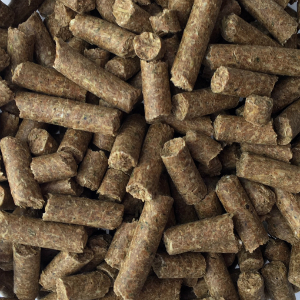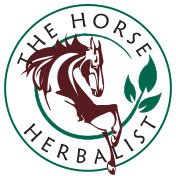Your cart is currently empty!

Horses are Herbivores (what’s in your feed?)
Horses are herbivores, aren’t they?
So why are we feeding products and supplements which go against the Law of Nature?
Horses are pure herbivores – their bodies are designed to eat plant material only. The herbivore species have flat grinding teeth and a very long digestive system specifically designed to break down tough cellulose fibre in plants. Horses have jaws which move sideways enabling grinding of plant material in the oral cavity – digestion begins here. Once the food is reduced in size and thoroughly mixed with saliva it’s swallowed, travels down the oesophagus into the stomach.
Horses are ill equipped to cope with the large quantities of fat that are sometimes introduced to their diets by the well-meaning owner. Long term studies have shown this may cause duodenal reflux, this is where caustic bile in the small intestine back splashes into the stomach triggering ulcers.
Herbivores only eat things that need photosynthesis to live. This excludes fish, sharks, cows, shell fish and products made from them.
A study in the U.S on human dietary fish oil supplements containing beneficial Omega-3 fatty acids were found to contain more than 30 different fatty acids, including 10 – 14 different saturated fats. Oxidization in the leading fish oil dietary supplements exceeded maximum levels established by the International Standards of Quality. Little is known about the potential biological effects of these oxidized lipids.
These data indicate that the levels of saturated fats and oxidized Omega–3 fatty acids may interfere with their intended/potential biological effects.
Bear in mind this study is raising question marks for the human population whose gut is set up to be able to metabolise far more fat, be it saturated or unsaturated, than the horses’ system which isn’t equipped to deal with fats or animal products.
Horses may eat animal products occasionally due to nutritional stress or lack of any other feed. However, most supplements on the commercial market containing animal material are well disguised to ensure horses find them palatable. They can be inadvertently disguised on the ingredients label also. After all, how many people could be expected to know that chondroitin and glucosamine are natural compounds found in the cartilage, trachea or tails of animals such as cows, pigs, sharks or shellfish. Plant based glucosamine is not so readily available.
If your horse sifts out some of these products or won’t eat their feed, then take the hint – don’t feed it.
It seems that even reputable companies look at the science behind a particular nutritional constituent and the way it may work within the body (usually data from human trials) whilst completely disregarding the Laws of Nature pertinent to the horse. Is this wise?
Are we looking at short term gain with possible long term pain from other areas of the body which may only show up over time. Some data suggests that herbivores fed animal products may develop organ disease, growth abnormalities, tumours or digestive disorders.
However, if you have an old horse who is joint sore then use any of these supplements to relieve inflammation and pain, quality of life is premium, possible long-term negative effects don’t apply to the oldies.
It’s undoubtably a difficult situation as some of the animal-based supplements can really improve arthritic horses as they do in humans and dogs. Short term trials have reinforced this.
The author cannot find any scientific data which supports that any of these animal based supplements act as a preventative for arthritic disease.
Authors note:
With my unique hair assessment system I get the horses I assess to rate all feeds and nutritional supplements because (just like humans), what suits one horse may not suit another. Rating is done on a scale of 0 – 10. 10 = perfect, 5 = average or not required, 0 = poison. 3 and below is damaging to the horse’s system.
I have rated over 10 thousand horses over 27 years. ALL horses have rated anything containing animal products 3 or below. I have had many client’s horses who have been diagnosed with unusual tumours, particularly in the gastro-intestinal tract. This led my investigation into common feed additives and their potential side effects in our beloved equine companions.
